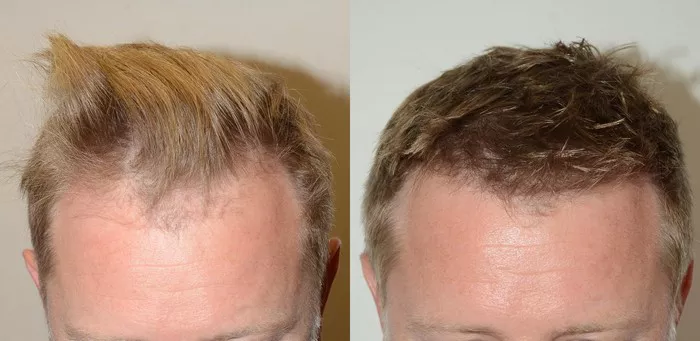When it comes to addressing hair loss concerns, hair transplants have emerged as a popular and effective solution. For individuals grappling with thinning hair or balding, the promise of a full head of hair is enticing. But how well do hair transplants work, and what can you expect from this procedure? In this article, we’ll delve into the world of hair transplants, providing you with a comprehensive guide to help you make an informed decision.
The Science Behind Hair Transplants
Hair transplantation is a surgical procedure that involves the removal of hair follicles from one area of the body (typically the back or sides of the scalp) and their transplantation to areas with hair loss. The process typically involves two primary techniques: Follicular Unit Transplantation (FUT) and Follicular Unit Extraction (FUE).
Evaluating Success Rates
The effectiveness of hair transplants can vary from person to person, depending on various factors. Success rates can be influenced by the surgeon’s skill, the patient’s hair characteristics, and the chosen transplant method. On average, hair transplant procedures have a success rate of approximately 90-95%, making them a reliable option for many.
Factors Affecting Hair Transplant Success
The following are factors that influence the success of hair transplantation:
1. Candidate Selection
Not everyone is an ideal candidate for a hair transplant. Those with severe health conditions or unrealistic expectations may not experience the desired results. A thorough consultation with a qualified surgeon is essential to determine whether a hair transplant is suitable for you.
2. Hair Characteristics
The quality and characteristics of your hair, such as thickness, texture, and color, can impact the success of the procedure. Patients with good donor hair, which is typically found at the back and sides of the scalp, tend to have more successful outcomes.
3. Surgeon Expertise
The experience and skill of the surgeon performing the hair transplant play a crucial role in its success. It’s imperative to choose a board-certified, experienced surgeon who specializes in hair transplantation for the best results.
4. Method Selection
The choice between FUT and FUE can also affect the success of your hair transplant. FUT involves the removal of a strip of skin, while FUE involves individual follicle extraction. Your surgeon will help determine the most appropriate method based on your specific needs.
The Recovery Process
Here is the hair transplant recovery process:
1. Post-Surgery Care
After a hair transplant, it’s essential to follow the surgeon’s post-operative instructions carefully. This typically involves avoiding strenuous activities, keeping the scalp clean, and taking prescribed medications. The recovery period can vary but usually takes several weeks.
2. Hair Growth Timeline
Patience is key when it comes to hair transplants. You may not see immediate results, as the newly transplanted hair follicles need time to establish themselves. Hair regrowth typically begins within three to four months, with full results visible after 12-18 months.
Long-Term Results and Maintenance
Here are the long-term results and maintenance:
1. Permanent Solution
One of the most significant advantages of hair transplants is that they provide a permanent solution to hair loss. The transplanted hair behaves just like the rest of your natural hair and continues to grow over time.
2. Additional Procedures
In some cases, individuals may opt for multiple hair transplant sessions to achieve their desired hair density. Discuss your long-term goals with your surgeon, and they can guide you on the need for additional procedures.
3. Hair Maintenance
While transplanted hair is permanent, the natural aging process can still impact hair quality. It’s essential to maintain a healthy lifestyle and use appropriate hair care products to ensure the longevity of your transplanted hair.
Costs and Considerations
Here are the costs and considerations:
1. Financial Aspect
Hair transplant costs can vary widely depending on factors like the clinic’s location, the surgeon’s expertise, and the number of grafts required. It’s crucial to have a clear understanding of the financial aspect and explore payment options.
2. Consultation
Before committing to a hair transplant, schedule a consultation with a qualified surgeon to discuss your specific needs, expectations, and the associated costs. This will help you make an informed decision.
See Also: How Much Is the Average Hair Transplant Cost: A Quick Guide
Conclusion: The Efficacy of Hair Transplants
Hair transplants are a viable and often highly effective solution for addressing hair loss concerns. While the success of these procedures can be influenced by various factors, they offer a permanent and natural-looking result. Choosing a skilled surgeon, understanding the factors that affect success, and committing to the necessary recovery and maintenance will maximize the effectiveness of your hair transplant.
In summary, when evaluating how well hair transplants work, it’s essential to consider the science behind the procedure, the factors affecting success, the recovery process, long-term results, and the associated costs. By doing so, you can embark on your hair transplant journey with confidence and realistic expectations, ultimately enjoying the benefits of a fuller head of hair.


